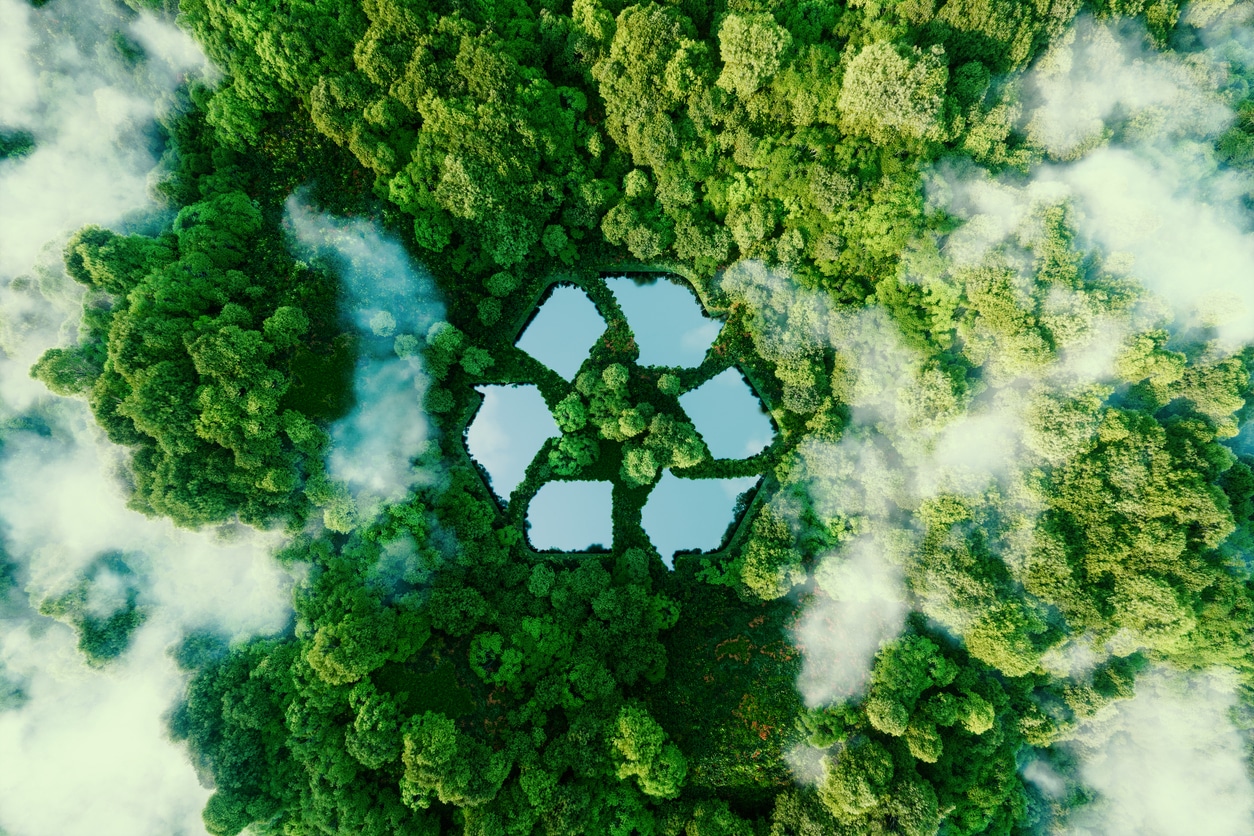Maintaining a safe, clean, and efficient work environment is essential for any industry. Adhering to…

How Does Not Recycling Affect the Environment?
As eco-friendly living and the Roads to Carbon Neutral continue to dominate conversations in the U.S., the effects of not recycling have been widely discussed. But while we are continually warned that now is the time to go green, especially for businesses, the consequences of not recycling are often overlooked.
Recycling isn’t the only ingredient in the recipe for social responsibility, and companies should consider PPE laundering and other activities that make physical resources work harder. Here at Bates Enterprises, our experts can support businesses like yours with various relevant services, including recycling. Here’s why ignoring it could seriously harm the environment.
Accelerates Climate Change
If you seek to understand the impact of not recycling on the environment or the effects of landfills, the most significant concern is related to climate change. Since 1880, the earth’s temperature has risen every decade, despite efforts to mitigate the damage. One of the factors that contribute to this issue is the failure to recycle.
The decomposition of waste in landfills results in the release of pollutants into the atmosphere. Additionally, not recycling leads to the need for new materials and resources for manufacturing processes, which subsequently increases the emission of greenhouse gases (GHGs).
Wastes Energy
Energy consumption, specifically the use of fossil fuels, has been a long-standing concern among environmental activists. One of the less-discussed consequences of not recycling is the need for waste disposal, which typically involves energy-intensive methods.
This contributes to pollution and global warming while putting pressure on natural resources. To address this issue, implementing a responsible recycling strategy can help to mitigate these negative impacts.
Pollutes The Land
Ignoring the need for responsible recycling, particularly industrial recycling, leads to overflowing landfills. In addition to the foul smells that can spread throughout the local area, it releases harmful chemicals into the atmosphere. This contributes to ozone layer damage, which exposes the planet to stronger UV rays.
UV exposure increases the risk of cancer and isn’t the only cancer-linked risk. Waste materials like styrofoam release cancerous cells into the soil, subsequently impacting food production lines and harming the environment and the human race.
Kills Endangered Species
An estimated 91% of plastic is not recycled. One of the most considerable consequences of not recycling is that plastic pollutes the oceans. It puts millions of animals at risk, including many endangered species. This is because the plastics contaminate the water, while the receptacles cause choking hazards for turtles and other wildlife.
Meanwhile, toxins released into the atmosphere can harm animals and plants on the land. Furthermore, habitats may be destroyed or inhospitable due to hazardous waste caused by landfills.
Endangers Human Life
Plastic waste can contaminate our drinking water supplies and food production lines. It contributes to the estimated weekly human plastic consumption of 5 grams. Similarly, toxins released into the air and soil will harm human life.
It should also be noted that landfill will attract rodents and other disease-spreading animals. When handled correctly, though, industrial recycling can significantly reduce the volume of waste and help avoid the transmission of preventable diseases.
Do Your Part: Invest in PPE Laundering Services
When it comes to protecting our planet, every action counts, and industrial recycling and PPE laundering are two essential steps toward sustainability. Industrial recycling minimizes the need for new resources and reduces landfill waste. Repurposing materials contributes to a circular economy, reduces energy consumption, and lowers greenhouse gas emissions.
Similarly, PPE laundering not only saves money by prolonging equipment life but also helps minimize waste, reducing the need for new PPE to be produced. This approach saves resources and energy, reduces landfill waste, and lessens the overall environmental impact of manufacturing processes. Together, industrial recycling and PPE laundering not only save costs but also help to create a cleaner, more sustainable world for ourselves and future generations. By taking these actions, you’re protecting the environment and setting an example for others to follow.
Contact Bates Enterprises For Best In Class PPE Laundering Services
Bates Enterprises’ experience in the PPE laundering industry has informed our development of customized procedures that suit your company’s needs. Our more than 8,000 satisfied clients can speak to our dedication to preserving the environment while improving your bottom line.
Contact us today for a free trial, and learn what we can do for you!


